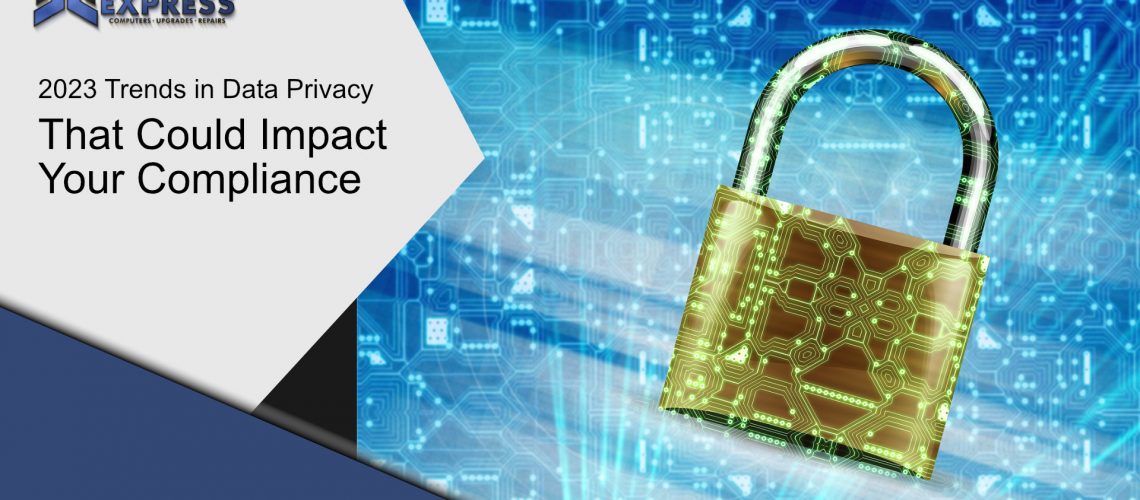Data privacy has been increasingly important since the dawn of the digital age. So much personal information is being transmitted via computer networks. Its protection has become a requirement that businesses of any size throughout Boardman should address.
Most businesses must adhere to HIPAA, GDPR, or another industry or jurisdiction-specific privacy rule. Personal data will be secured for 75% of the world’s population by the end of 2024. It will be subject to one or more privacy laws.
You don’t have to be a giant corporate organisation to prioritise data privacy compliance. It is closely related to cybersecurity. Furthermore, privacy regulations affect businesses of all sizes.
The number of GDPR infractions increased by 113.5% between July 2020 and July 2021. The amount of related fines increased by 124.92%. When it comes to HIPAA infractions, each event might result in a fine ranging from $100 to $25,000.
It is critical to prioritise data privacy and include it into all of your data collection procedures. Companies must protect personally identifiable information (PII) when they collect, distribute, or retain it. This entails putting in place suitable safeguards.
You should also keep up with trends in this area to stay on top of your privacy compliance duties. Following that, we’ve compiled a list of the most important data privacy trends to watch in 2023.
What’s Happening in Data Privacy Compliance?
AI Governance
Artificial intelligence (AI) is required to operate around 40% of privacy compliance systems. AI has undoubtedly crept into many of the programmes we use on a daily basis.
When you’re typing in MS Word and a text suggestion appears, that’s AI anticipating what you’ll enter next. When working with Photoshop, you may now click a button to make a frowning face smile. This is also AI’s work.
As a result, it’s no surprise that AI is powering many of the algorithms responsible for data security. But what happens if there is an issue with the AI?
This is the issue that AI governance is attempting to address. Because AI has never been more widespread along the data journey than it is now, this is a new trend in data privacy.
Organizations must effectively control AI whenever it is utilised in data protection. This helps to ensure that automated operations do not inadvertently expose sensitive data.
Consumer Privacy UX
Over the last few months, we’ve observed a trend toward giving consumers more privacy control. Many privacy laws require data disclosure from apps and websites. They must inform the public about the data they gather, how they obtain it, and what they do with it. People also require a “out” in order to retrieve their data.
Because of these requirements, consumer privacy UX has become a “thing.” Consider this to be a consolidated privacy portal. A location where users may access privacy settings in multiple apps. This offers them a better understanding of how their data is being used.
Increased Scrutiny of Remote Employee Monitoring
The pandemic has permanently altered the worldwide workforce. Many businesses now operate entirely from remote locations. Alternatively, you could use a combination. Changes in data collecting have resulted from the substantial growth in persons working from home. Companies are increasing their monitoring of employees who work remotely. However, when it comes to data privacy, this form of surveillance creates a can of worms.
Organizations must guarantee that they are not infringing on the rights of their employees. This is especially important when installing monitoring on employee devices. For example, 49% of remote workers use their personal laptops for work. Endpoint device monitoring is frequently implemented by businesses for security concerns. They must ensure that no personal data is collected or backed up. That is data that the employee owns, not the firm.
Data Localization
When the social app TikTok got famous, one of the concerns was about location. People were concerned about the privacy of their data because the firm was situated in China. The data was originally housed on Chinese government-controlled servers. A country with data privacy laws that differ greatly from those of the United States and other countries. Data localization will become more common. Organizations are increasingly concerned about the location of their cloud data. The location of a server influences the privacy rules and regulations that it may be subject to. As a result, businesses and governments are now questioning cloud providers. The question is, “Where is my data stored?” Many people like to have their data as near to home as feasible.
Privacy-Enhancing Computation (PEC)
Data privacy through design is a relatively recent concept. AI is assisting cybersecurity by using privacy-enhancing computing. Developers add value to clients by incorporating PEC as a built-in component of software and apps. They address privacy problems by automating data protection. When purchasing for business tools, look for PEC components in data analytics.
Compliance Checks with Cyber Express
How are your data privacy protections? Are you risking a penalty due to lax controls? If you’re situated in Boardman Ohio we can help with a compliance checkup.
Article used with permission from The Technology Press.

